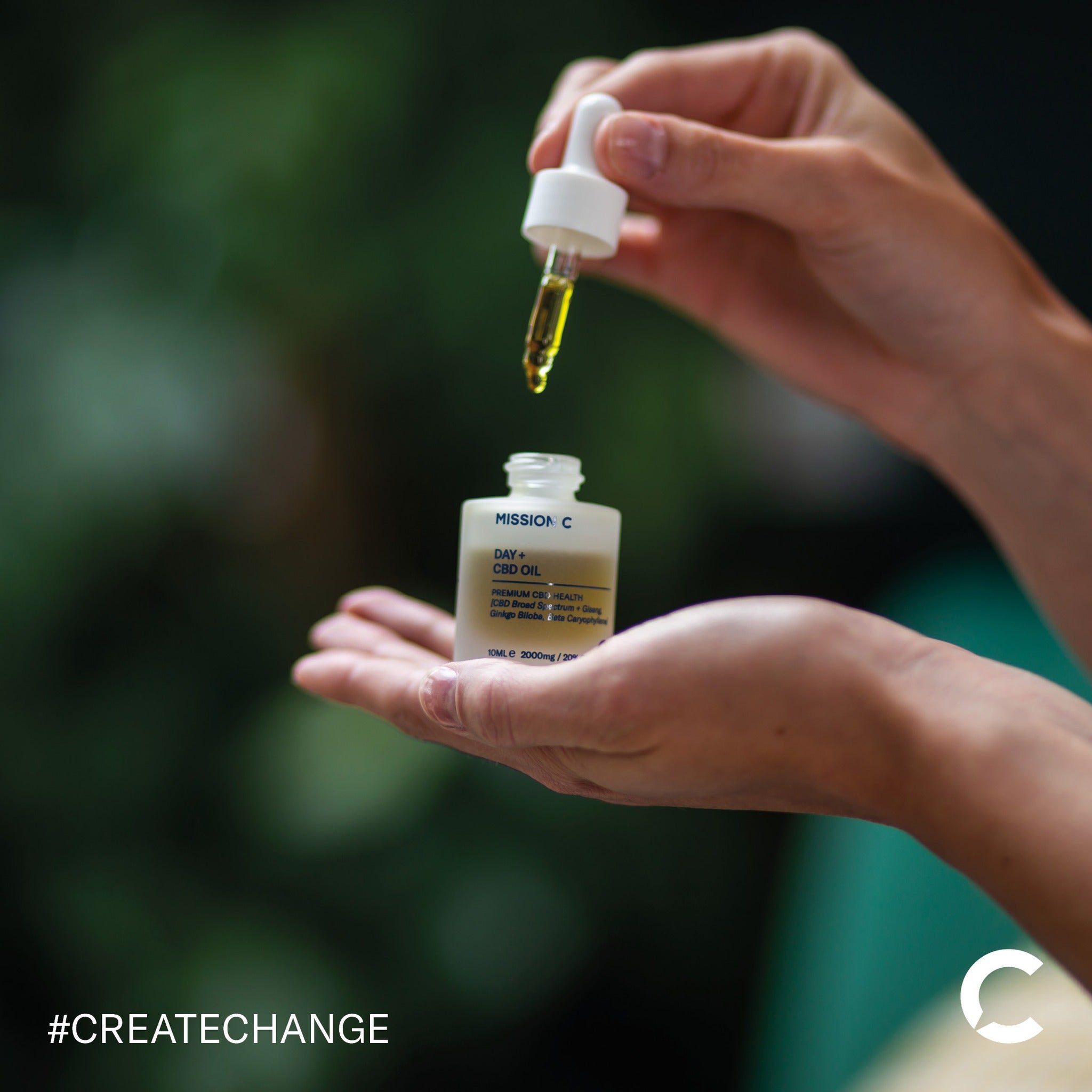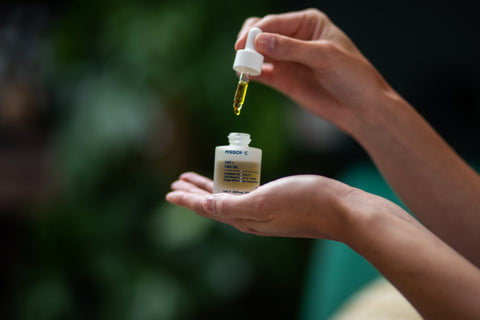
With the CBD oil industry booming in the UK (the market value is predicted to reach almost £1 billion by 2025), it’s a clear indication that an increasing number of people are attracted to the wellness-boosting benefits of the hemp-derived cannabinoid. Following CBD’s significant popularity boost, many are also wondering where the popular stress-reducing supplement originates from and the process by which it is made.
CBD is usually sold and supplied in oil form; this is extracted from the hemp plant and blended with a carrier oil. In this article, we take a look at the range of processes involved in the cultivation, extraction and refinement of CBD-enriched oil.
What is CBD Oil?
Before we get into how CBD oil is produced, let’s define the difference between hemp and marijuana. Both the hemp and marijuana plants belong to the cannabis plant family, but hemp plants contain less than 0.3% THC (tetrahydrocannabinol). In contrast, marijuana contains more than 0.3% THC, is psychoactive, and is grown for medical or recreational purposes.
CBD, alongside THC, is a natural extract of both hemp and marijuana. Unlike THC, CBD is non-psychoactive. It is often extracted from hemp due to the plant’s low levels of THC, to allow users to experience CBD’s myriad of benefits for health, such as stress relief, pain reduction, better sleep and improved concentration.

How is CBD Oil Made?
CBD is extracted from hemp flowers, but despite the UK industry boom, CBD cannot legally be cultivated in the UK. Farmers in Britain (with the relevant licence) can grow hemp to make hemp oil, construction materials, etc., but not for CBD cultivation. This means that British farmers can harvest the hemp seeds and stems, but the CBD-rich flowers and leaves are left to degrade – or must be destroyed.
Until UK restrictions are changed, hemp growth for CBD cultivation must take place elsewhere; this is typically in Europe or the USA. Mission C CBD is extracted from hemp plants grown in Kentucky, USA. Other US states that grow hemp in large quantities are Minnesota, Colorado, North Carolina, Montana and Oregon.
The Sowing Stage
Before sowing, the soil is carefully prepared and tested for herbicides. In the spring, hemp seeds are sown by machines into grooves in the soil. Hemp crops can be planted very closely together and demonstrate fast results; seeds can show some growth within two days and reach heights of two feet within four weeks.
Cultivation
The hemp growth cycle is typically 6 months, with harvesting taking place around August. No fertiliser is required to farm the brilliantly robust hemp plant. The natural condition of the soil, plus rainwater, is sufficient for good plant health and solid growth.
Hemp Harvesting
Once the plants are fully grown and the conditions are dry enough, the hemp harvest can take place. The CBD-rich flowers and leaves are collected by a special type of combine harvester.
Once harvested, the hemp is dried, tested for CBD quality and – if all boxes are ticked and standards are met – the plant is ready for cannabidiol extraction.

CBD Extraction
A common method of CBD extraction from hemp is the CO2 extraction method (supercritical carbon dioxide). This involves the use of pressurised CO2 in a chamber whereby the CO2 absorbs hemp oils and leaves behind CBD. This is a super clean process which results in a full-spectrum CBD extract. For broad-spectrum CBD or pure CBD isolate, the extract will require further refinement using distillation methods (for broad-spectrum extract) or an isolation process called reverse chromatography (for pure CBD isolate).
Alternative Extraction Methods
CO2 is just one type of CBD extraction method, albeit a popular one. Ethanol extraction involves the soaking of hemp in high-grain alcohol to extract CBD. Another method is oil extraction, whereby the plant is heated and cooked using a carrier oil (often olive oil) which leads to cannabinoid extraction.
Final Formulation
Once extracted from the hemp plant, CBD is combined with additional ingredients such as carrier oil and flavouring. For instance, Mission C Night + CBD Oil is a relaxing blend of broad-spectrum CBD, coconut MCT carrier oil, chamomile, passionflower and myrcene.

Carrier oils such as coconut MCT are naturally abundant in saturated fats, which promote absorption of CBD and additional ingredients into the bloodstream, helping you to experience the wellness benefits faster!
Third-Party Lab Testing
Mission C CBD products undergo third-party testing for every batch of CBD. This involves laboratory testing of a sample of each batch for potency and purity and ensures that Mission C products are of the highest quality.
What’s the Difference Between CBD Oil and Hemp Oil?
Hemp oil and CBD oil are not the same. The stalks, leaves, and flowers of the hemp plant contain a greater quantity of CBD. Hemp oil is extracted from tiny seeds of the plant, which do not contain CBD.
Is CBD Oil Addictive?
No, CBD oil is not addictive. It is regarded as a safe substance which does not cause a high, and is fully legal in the UK.
What is CBD Oil Good For?
CBD oil is revered for its many wellness benefits. It can be used to promote relaxation, reduce anxiety, ease stress and induce deeper, sounder sleep. CBD oil has also been shown to ease joint and muscle pain, reduce inflammation and provide support for the immune system. Some people use CBD to ease symptoms of rheumatoid arthritis, for example.
CBD oil is also becoming increasingly popular in the beauty industry. The cannabinoid is an antioxidant that helps to fight free radicals, hydrates the skin, regulates sebum production and can help ease symptoms of certain skin disorders such as acne, psoriasis and eczema.
The Bottom Line
Having a direct and clear supply chain helps companies produce high-quality CBD oil. The majority of companies that provide excellent oils within the UK market are those that are transparent about their manufacturing processes and conduct regular third-party testing. The CBD industry has a long history, but in recent years technological advancements have allowed for a better end product. Better manufacturing processes have also made it easier to create CBD oil that contains very little THC, the psychoactive compound in cannabis.
